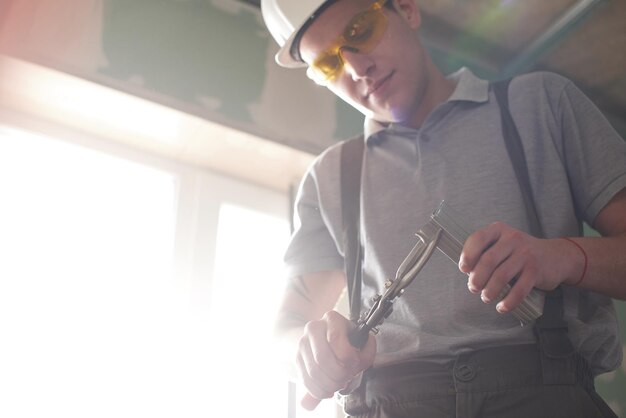What Does an Electrician Do, Really? Here's Your Comprehensive Guide
In the age of modern marvels, electricians are the unsung heroes who illuminate our world, ensuring that life runs smoothly with the flick of a switch. Whether at home, in office buildings, or industrial complexes, electricians are crucial to the functionality and safety of electrical systems. But what exactly do these skilled professionals do?
Understanding the Role of an Electrician
Electricians are responsible for installing, maintaining, and repairing electrical systems in residential, commercial, and industrial settings. Their work involves:
- Installation of Wiring and Equipment: Whether it’s setting up new electrical systems in a home or upgrading outdated wiring in a factory, electricians ensure all electrical components are installed correctly and safely.
- Maintenance Tasks: Regular checks and maintenance are crucial to preventing electrical hazards. Electricians conduct inspections and tests to ensure systems function efficiently.
- Troubleshooting and Repair: When electrical issues occur, such as power outages or faulty circuits, electricians troubleshoot and resolve these problems promptly to prevent disruptions or potential dangers.
- Reading Blueprints and Technical Diagrams: Electricians need to understand complex technical diagrams and blueprints to install systems correctly and diagnose issues efficiently.
- Safety Compliance: They ensure that all electrical systems adhere to safety standards and regulations, minimizing risks such as fires or electrical shocks.
The Road to Becoming an Electrician
Becoming an electrician requires both education and practical experience. Typically, aspiring electricians start with a high school diploma or equivalent, followed by an apprenticeship program that combines classroom instruction with hands-on training. Many apprenticeships offer paid opportunities, making it an attractive option for those seeking a financially stable career path.
Bridging the Skills Gap
In today's rapidly evolving economy, there is a growing demand for skilled tradespeople, including electricians. For those interested in pursuing this path, numerous government aid programs and educational grants are available to help cover training costs and certifications. These grants not only ease the financial burden but also encourage more individuals to enter the trade, helping to bridge the skills gap.
Financial Opportunities for Aspiring Electricians
Starting a career as an electrician can be expensive due to tuition, tools, and certification costs. Thankfully, various financial assistance programs and credit solutions can help manage these expenses. For example:
- Federal and State Grants: Available to students enrolling in technical schools or apprenticeship programs.
- Low-Interest Loans: Designed specifically for vocational education, helping to cover upfront costs.
- Scholarships: Offered by trade associations and private entities to support students in electrical programs.
Benefits Beyond Income
Aside from financial stability, being an electrician offers numerous non-monetary benefits, including job security, the satisfaction of solving complex problems, and the potential for self-employment. As our dependence on technology increases, so does the demand for skilled electricians, making it a robust career choice for the future.
Explore Resources to Jumpstart Your Career or Manage Finances
Looking to start a career as an electrician or manage finances associated with training? Here are some resources to consider:
- 🎓 Trade School Grants: Many institutions offer grants specifically for trades like electrical work, reducing tuition costs.
- 💡 Apprenticeship Programs: Earn while you learn through paid apprenticeships, which provide practical training and classroom learning.
- 💼 Career Transition Loans: Loans tailored for adults transitioning into trades, with flexible payment terms.
- 📚 Certification Scholarships: Scholarships that cover costs associated with obtaining necessary certifications or licenses.
The world of electricity is dynamic and ever-evolving, making the role of an electrician both essential and immensely rewarding. By tapping into the available resources, aspiring electricians can overcome financial barriers, gain necessary skills, and power the future of electrical innovation.

